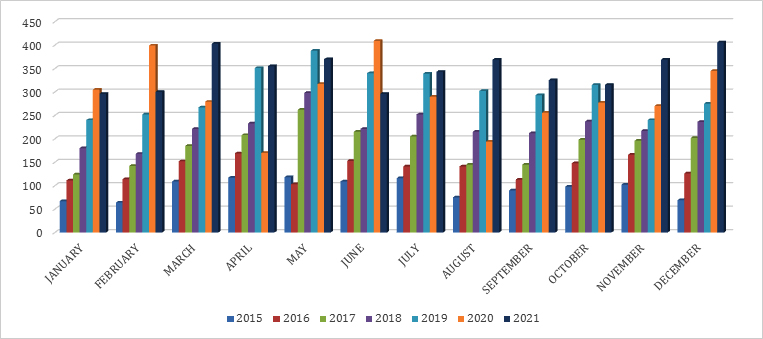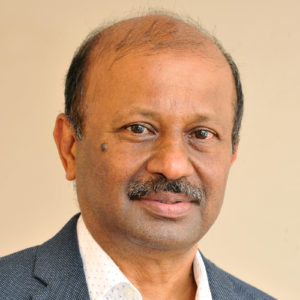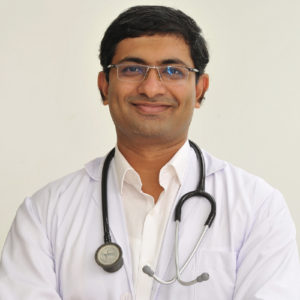Department of Urology was founded at Sigma Hospital in 2014 by the renowned urologist and renal transplant surgeon, Dr. K M Madappa.
With over 19,000 successful surgeries in the last seven years, the Sigma Hospital Urology Department leads Mysore city in the scale and expertise of Urology care delivered.
The department has grown over the past few years into the leader in providing quality, cutting edge and affordable urological care to the people of Mysore, Mandya, Kodagu, Chamarajnagar and Hassan while also attracting patients from around the country and the world.
Sigma Hospital has the best laparoscopic Urology team in the city.
The goal is to provide comprehensive Kidney care, inclusive of renal transplant under one roof .
UROLOGY SURGERIES PERFORMED AT SIGMA HOSPITAL

Expertise of the SIGMA Urology Department
Urolithiasis Management (Kidney and Urinary Tract Stone Removal)
The Sigma Urology Department has developed specific expertise in removing all stones from anywhere in the urinary system under one roof with most cases handled as minimally invasive daycare procedures
Kidney stones upto 15mm treated by ESWL as an outpatient procedure using the German made Dornier Alpha machine
Cystolithotripsy for urethral and bladder stones using laser
Ureteroscopy for ureteric stones using laser
RIRS (Retrograde Intrarenal Surgery) for kidney stones and large upper ureteric stones using flexible uretero-renoscope with laser
PCNL for large kidney stones by making a minimal incision (<1cm)
Laparoscopic procedures for very large ureteric stones with small (<1cm) cuts
Endourology
In addition to stone management, there is an array of endourological procedures carried out at Sigma Hospital
- TURP for endoscopic treatment of benign prostate enlargement
- Bipolar TURP/Saline TURP
- TURBT – endoscopic removal of bladder tumor
- TUIBN – for treatment of bladder neck obstruction
- Cystoscopic Fulguration of posterior urethral valve
- Cystoscopy and Urethrotomy for stricture urethra
- Endoscopic management of ureteric stricture and tumor
Laparoscopic urology
- We have a full fledged laparoscopic urology unit with a dedicated theatre.
- We perform basic to advanced laparoscopic procedures
- We are one of the few centres in Mysore to perform pediatric laparoscopic urological procedures.
Urooncology
We offer treatment to all cancers of the genitourinary tract
Laparoscopic surgery done for tumours of kidney, ureter, prostate
One of the few centres performing laparoscopic partial nephrectomy for kidney tumours
Reconstructive urology
Treatment of simple and complex urethral strictures
Laparoscopic reconstruction of ureteric strictures
Laparoscopic Pyeloplasty for adult and Paediatric Puj obstruction
Pediatric urology
Hypospadias repair
Ureteric reimplantaion for VUR
Mangement of Pediatric stone disease
PUV fulguration
Female Urology
One stop centre for treatment of all female urological problems
TVT/TOT insertion for management of Stress urinary incontinence
Laparoscopic Sacrocolpopexy for vault and UV prolapse
Laparoscopic repair of vesico/urertero vaginal fistulas
One of the few centres to perform Buccal mucosal graft urethroplasty for female urethral strictures.
Renal Transplantation
The Urology and nephrology departments at sigma hospital have always had a vision to provide a one stop complete solution to all the nephrology and urology problems. In 2019 sigma team got recognized under the THOTA Act. The first Renal transplant was conducted on 19 Febrauary 2020. Since then, the hospital has performed 39 successful kidney transplant procedures.
State-of-the-art Kidney Transplant unit has been functioning at Sigma Hospital since 2020.
Dr. K M Madappa performed the very first renal transplantation in Mysore in 1993. Over his career of 33 years he has spearheaded the field with nearly 400 successful renal transplantations. He established and led the transplantation team at JSS Medical College for 25 years.
The dedicated team nephrologist, anesthetists and nurses with state of the art operating theaters make it one of the best centers for Kidney transplantation in Mysore.
With the most experienced transplant team in the city, we have handled many challenging cases.
All our donor surgeries are done using advanced laparoscopy.
The complex recipient surgeries handled at Sigma Hospital include:
- Double and triple vessel anastomosis
- Transplantation with abnormal bladder
- Transplantation with absent bladder with successful continuous draining ureteric stoma.
The complex medical transplantation challenges handled successfully here include:
- Transplant across blood groups
- Transplant with sensitized recipient
- Transplant in a recipient with Tuberculosis
We are the only hospital in Mysore with an in-house transplant team. With our expertise, we hope to be the leading hospital for providing kidney transplant solutions to patients of Mysore and all the neighbouring districts.
We are one of the 6 centres in Karnataka to be recognized by the NBE for DrNB in urology (super specialization degree in urology). We are confident that we can adequately train future urologists in the field of kidney transplant.
Our Renal transplantation team :
Dr.K M Madappa ( Chief Transplant Surgeon)
Dr. Somanna D N ( Transplant surgeon)
Dr Aniket Prabhakar (Nephrologist)
Dr Akhila (Anaesthesiologist)
Dr.Naveen (Anaesthesiologist)
 |
Dr. K M Madappa Days :: Mon – Sat Working Hours :: 9 am to 5 pm OPD Timings :: 10 am to 2 pm |
 |
Dr. Somanna D N Days :: Mon – Sat Working Hours :: 9 am to 5 pm OPD Timings :: 9 am to 4 pm |
Contact :: OPD Contact No 0821 4239027
Contact details for queries on admission to DrNB Urology ::
Phone :: +91 98456 00050
Email :: sigmahospital.tpa@gmail.com
Frequently Asked Questions
A kidney transplantation is a procedure where a healthy kidney is placed in a patient who is suffering from failed kidneys and is on dialysis. The kidney usually takes over the function of native kidneys within days to weeks and thus the patient becomes free from dialysis. As compared to dialysis, kidney transplant not only provides better quality of life but also increased survival of the recipient.
Deceased kidney transplant: In deceased donor kidney transplant, the kidney is taken from a deceased donor (brain dead) and is surgically transplanted into the body of a recipient. Living kidney transplant: In living donor kidney transplant, the kidney is taken from a healthy living donor and is surgically transplanted into the body of a recipient. Living kidney transplant is better than deceased kidney transplant due to High success rate Kidney from a living donor usually functions immediately Gives time for preparation of donor and recipient. Less chances of rejection , especially when kidney is donated by a blood relative
Based on compatibility of blood, there are two types of kidney transplant ABO compatible kidney transplant ABO incompatible kidney transplant
In this type of transplant, the donor and recipient don't share the same blood group (E.g A B). Due to the presence of preformed antibodies to opposite blood groups, this type of renal transplant requires preparation of the recipient by giving medications and doing a procedure called plasmapheresis or immunoadsorption. In ABO incompatible transplant, the patient is admitted two weeks prior to date of transplant and started on medicines and above said procedures to prepare his/her body for transplant. As compared to ABO compatible transplant, ABO incompatible transplant carries higher risks of bleeding, infections, and rejections during the first one month. However, one month after transplantation, these patients survive and behave well just as those patients who underwent ABO compatible transplant. Kidney Transplantation

